Events and Activities
DIJ Newsletter Spring 2023
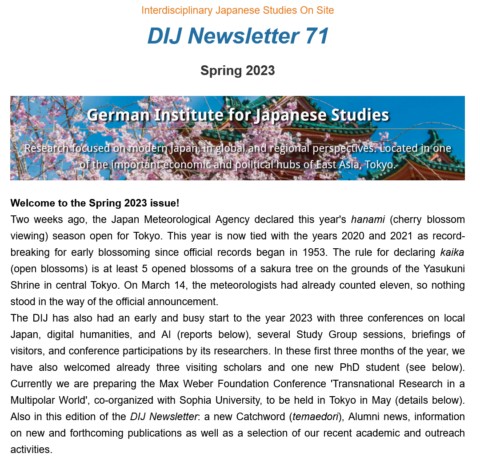
The spring issue of our DIJ Newsletter provides up-to-date insights into our research and publication activities, looks back to recent DIJ events, introduces new researchers, and gives updates on our outreach as well as on DIJ alumni activities. We hope you will enjoy exploring this new edition of the DIJ Newsletter. If you haven’t done so yet, you can subscribe to receive our Newsletters directly to your inbox. The full issues and subscription form are available here.
Discussion Paper on Japan’s monetary policy co-authored by Markus Heckel
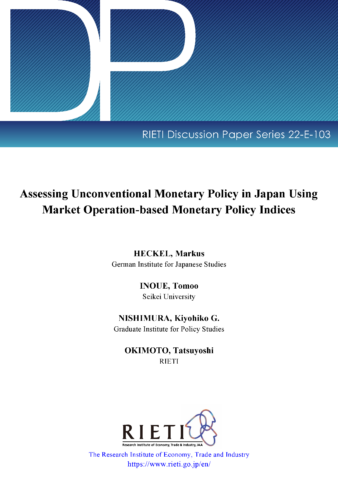
DIJ economist Markus Heckel has co-authored the discussion paper Assessing Unconventional Monetary Policy in Japan Using Market Operation-based Monetary Policy Indices which was published in the RIETI Discussion Paper series in November 2022. Together with his co-authors Tomoo Inoue (Seikei University), Kiyohiko G. Nishimura (Graduate Institute for Policy Studies), and Tatsuyoshi Okimoto (Research Institute of Economy, Trade and Industry, RIETI), Markus analyzes the effectiveness of unconventional monetary policy (UMP) from 2002 to 2019. Their study quantifies the effect of UMP carried out by open market operations on the macroeconomy in Japan based on four market operation-based monetary policy indices. The results indicate that there were three distinctive regimes with different policy impacts and that UMP carried out using market operations was the most effective in the second regime (mid-2008 to mid-2016). The discussion paper is freely available for download here
Special journal issue on Abe’s legacy for Southeast Asian relations

The latest volume of the open-access Kyoto Review of Southeast Asia investigates Shinzo Abe’s legacy for the future of Japanese-Southeast Asian relations. It was guest edited by DIJ historian David M. Malitz who also contributed the article “Japanese-Thai Relations through Two Coups: Back to Business”. In it, David traces the positive development of Japanese-Thai relations under Abe’s government (2006-07, 2012-20) during times of political instability in Thailand. The special issue also contains articles on Shinzo Abe’s military legacy for Indonesia (Bima Prawira Utama), Philippine-Japan relations (Karl Ian Cheng Chua), Japan-Singapore relations (Kei Koga), and Vietnam-Japan relations (Hoang Minh Hang). All articles can be accessed freely via the journal’s website here
DIJ Newsletter Winter 2022/23
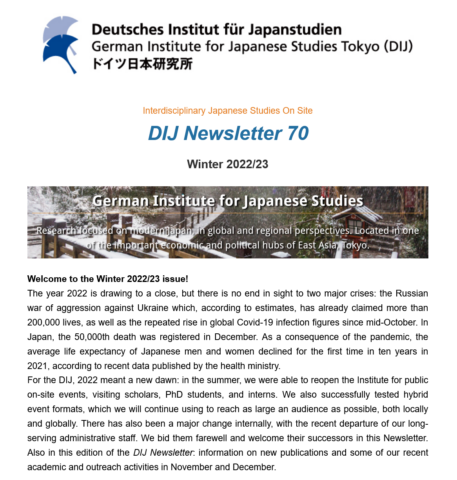
The winter issue of our DIJ Newsletter provides up-to-date insights into our research and publication activities, looks back to recent DIJ events, introduces new staff, and gives updates on our outreach as well as on DIJ alumni actvities. We hope you will enjoy exploring this new edition of the DIJ Newsletter. If you haven’t done so yet, you can subscribe to receive our Newsletters directly to your inbox. The full issues and subscription form are available here.
New issue of Contemporary Japan with special section on 10 years after 3.11
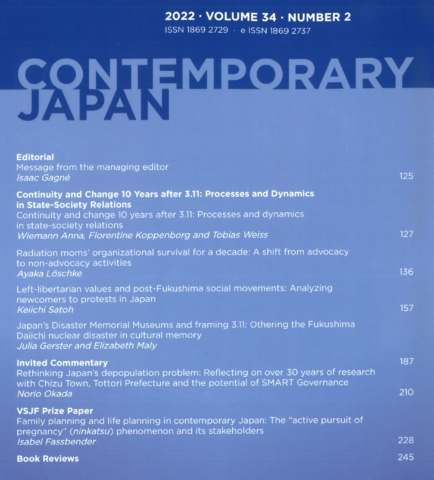
The newest edition of Contemporary Japan (vol. 34, no. 2) features a special section on “Continuity and Change 10 Years after 3.11: Processes and Dynamics in State-Society Relations”, guest edited by Anna Wiemann, Florentine Koppenborg and Tobias Weiss; an invited commentary by Norio Okada (Tottori University), who provides a fascinating reflection on his 30 years of fieldwork in so-called “depopulated areas”; and the English translation of the 2022 VSJF Prize Paper by Isabel Fassbender. Rounding out the issue, the book review section covers English and German language publications in the fields of education, family, history, religious studies, and black studies. Please see the full issue here
New edited volume studies German and Japanese approaches to ageing and elderly care in communities
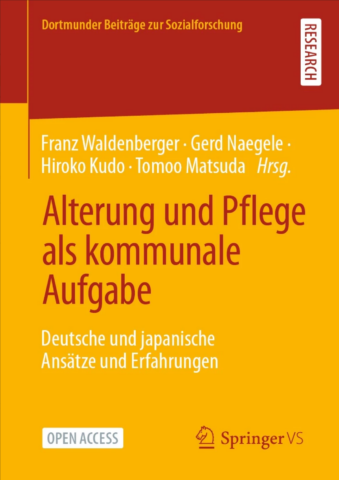
The contributions to the open-access anthology Alterung und Pflege als kommunale Aufgabe: Deutsche und japanische Ansätze und Erfahrungen (in German) describe and analyse the challenges and strategies of ageing and elderly care in Japanese and German communities from a multidisciplinary perspective. Themes include legal frameworks, civil society engagement, caregiver shortages, technology concepts for caregiving, and the impact of the Covid-19 pandemic on the situation of elderly citizens and those in need of care. The comparison of the approaches and experiences of both countries broadens the options for actions and can provide impulses for a reorientation of existing strategies. The book is co-edited by DIJ director Franz Waldenberger, Hiroko Kudo (Chuo University), Tomoo Matsuda (Mitsubishi Research Institute), and Gerhard Naegele (TU Dortmund). It is an outcome of the project Ageing and Elderly Care in German and Japanese Communities whose results were recently presented at an international conference in Tokyo (Details). A Japanese version of the book is currently being prepared.
New open access article studies effects of pandemic on singles’ relationships
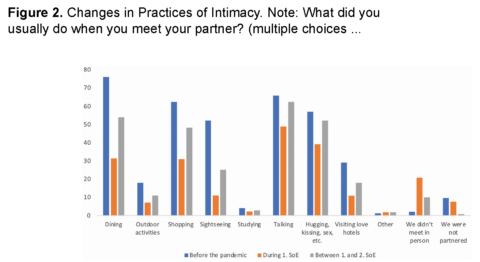
Singles (unmarried individuals) are a growing part of the Japanese population that has not received much attention in the context of the COVID pandemic. A new article by DIJ social scientist Nora Kottmann and Laura Dales (University of Western Australia) addresses the ways in which the pandemic and its associated interventions affect singles’ personal relationships and practices of intimacy as well as perceptions of singlehood and ‘solo activities’. Based on exploratory analyses of data from an online survey conducted in early 2021 , “Doing Intimacy in Pandemic Times: Findings of a Large-Scale Survey Among Singles in Japan” (Social Science Japan Journal, online first) shows that changes of practices of intimacy throughout the pandemic are less dramatic than anticipated. Nevertheless, changes are highly gendered and seem to support media and public discourse on how individuals are coping with the pandemic: an increase in social isolation, distress, acceptance of being single, and ‘solo activities’.
New article by David M. Malitz studies influence of Meiji Constitution on Siamese/Thai political thought
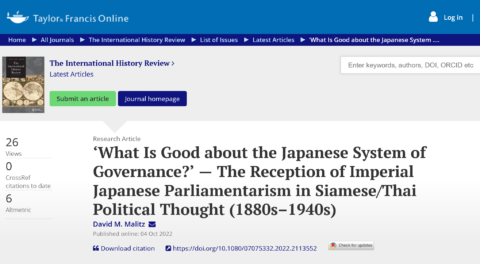
A new research article by DIJ historian David M. Malitz studies how the Meiji Constitution of 1889 and the Japanese Imperial Diet became crucial reference points in the development of Siamese/Thai political ideas from the 1880s to the 1940s. Published in the International History Review (October 2022), “‘What Is Good about the Japanese System of Governance?’ — The Reception of Imperial Japanese Parliamentarism in Siamese/Thai Political Thought (1880s–1940s)” is based on David’s contribution to the Symposium on the Occasion of the 130th Anniversary of the Opening of the Japanese Parliament, which he organized in November 2020 with the DIJ.










 Open Access
Open Access
